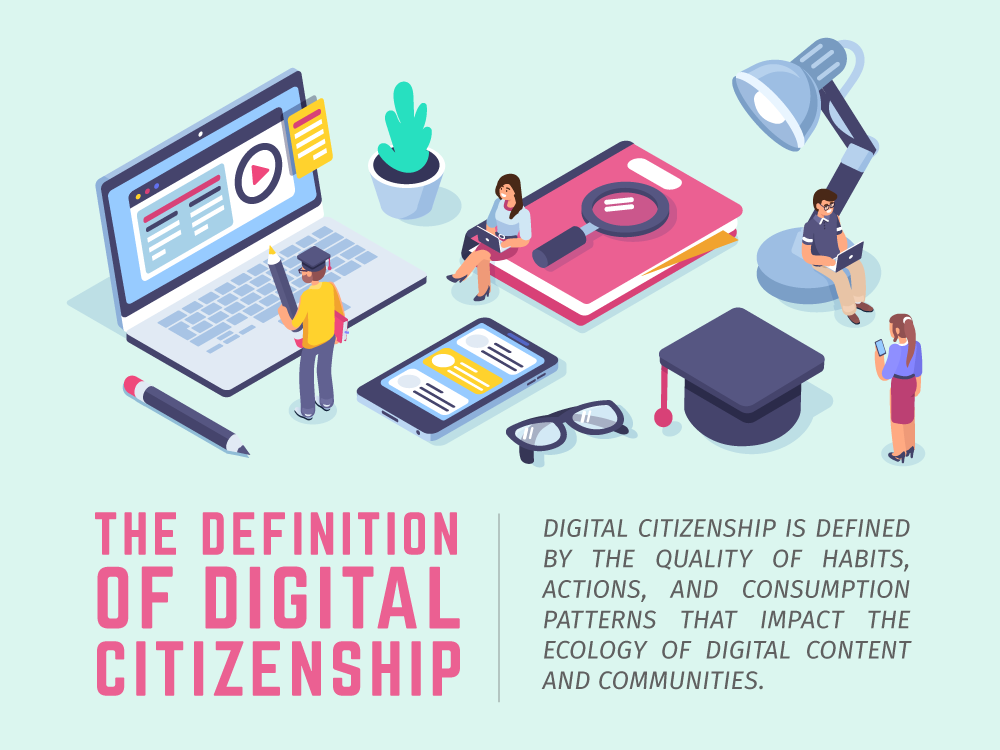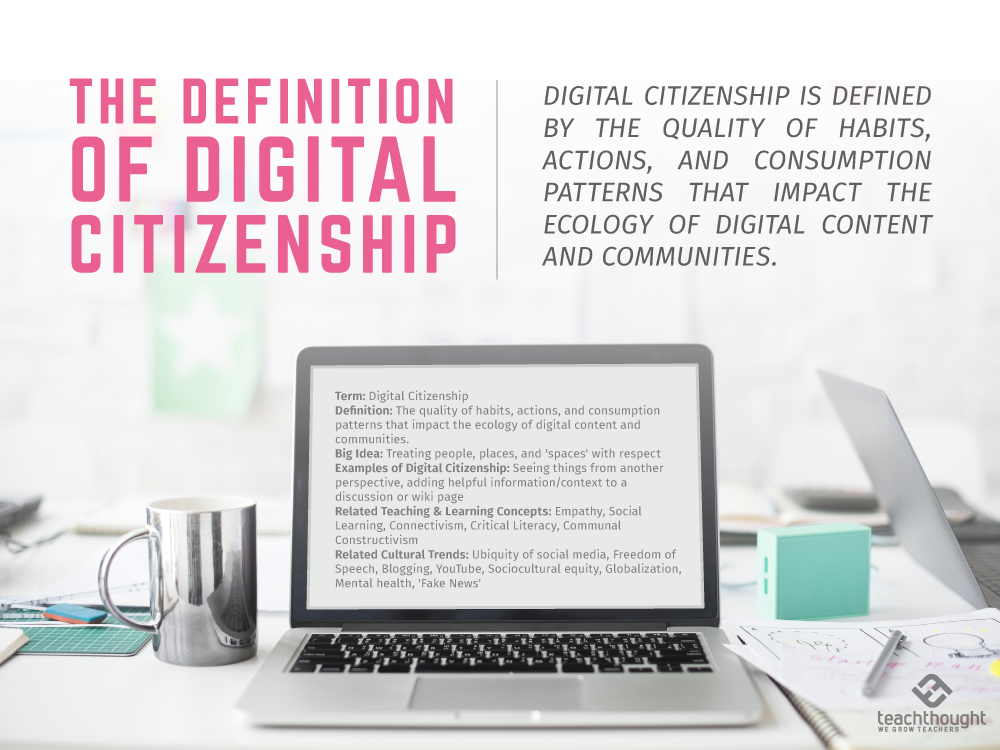
Digital Citizenship: A Definition For Teachers
by Terry Heick
This post was originally published in 2013 and was updated in December of 2024
As more and more students interact digitally–with content, one another, and various communities–the concept of digital citizenship becomes increasingly important.
Which begs the question: what is digital citizenship?
Well, first citizenship, which is formally defined as “the quality of an individual’s response to membership in a community.” This makes citizenship far more complex than a simple legal matter, but rather one that consists of self-knowledge, interaction, and intimate knowledge of a place, its people, and its cultural history.
So digital citizenship is nearly the same thing–“the quality of a response to membership in a digital community” would be a good first crack at the definition.
Revising that might more clearly articulate the differences between physical and digital communities, so a decent definition of digital citizenship then might be “Self-monitored participation that reflects conscious interdependence with all (visible and less visible) community members”
But that leaves out the idea of content itself, which leads us to a pretty good definition for educators: “The quality of habits, actions, and consumption patterns that impact the ecology of digital content and communities.”
Still too wordy? Maybe a shorter version for students–with some moral imperatives and implied advice–could be: “the self-monitored habits that sustain and improve the digital communities you enjoy or depend on.”

Overview
Term: Digital Citizenship
Definition: The quality of habits, actions, and consumption patterns that impact the ecology of digital content and communities.
Examples of Digital Citizenship: Communicating with respect, respecting others’ privacy, seeing things from another perspective, adding helpful information/context to a discussion or wiki page, supporting others by offering useful feedback, encouraging them, or sharing work they’re proud of, etc.
See also Inspiring Quotes About Life
Big Idea: Treating people, places, and ‘spaces’ with respect
Related Teaching & Learning Concepts: Empathy, Social Learning, Critical Literacy, Connectivism, Communal Constructivism
Related Teaching & Learning Resources:
63 Things Every Student Should Know In A Digital World
Moving Students From Digital Citizenship To Digital Leadership
Related Cultural Trends: Adaptive algorithms, disinformation and disinformation campaigns, ubiquity of social media, political ‘discussions’ on social media platforms, Freedom of Speech, ‘Global-Local’ social norms (i.e., China/free speech), Blogging, YouTube, Sociocultural equity, Globalization, Mental health, Bullying/Trolling, Clickbait, Critical thinking
The Definition Of Digital Citizenship
